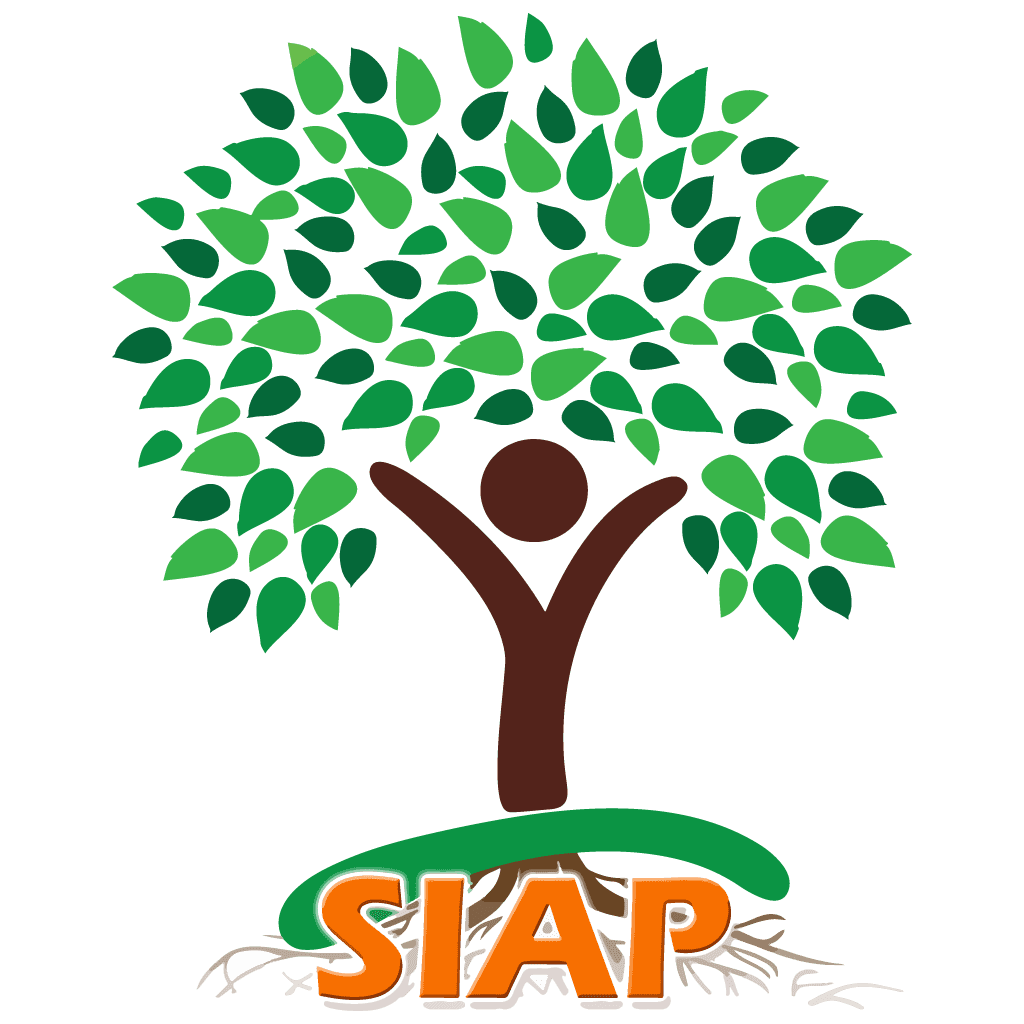Donate
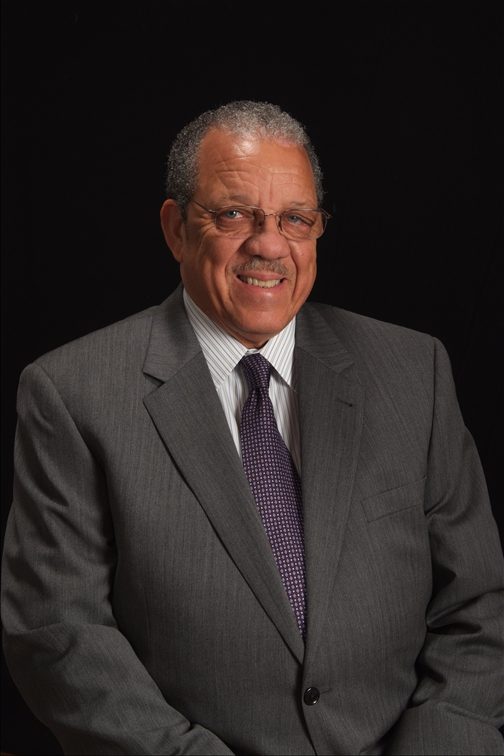
David J. Dennis, Sr.
Executive Director
Dear Friends and Supporters of SIAP,
All children deserve a quality education that will give them equal opportunity both locally and globally.
The work of the Southern Initiative Algebra Project (SIAP) shows a long history of commitment to supporting quality education for all children and success in helping students to achieve. SIAP began as a program of Algebra Project, Inc. in 1994 and developed 42 Algebra Project sites in eight states, involving over 4,000 teachers and 50,000 students in whole school mathematics education reform with the goal of having every student succeed in algebra by the end of the 8th grade.
After becoming a separate 501(c)(3) organization in 2002, SIAP in partnership with AP, Inc. continued its focus on whole-school reform and on community and school connections. Work centered on professional development for K-12 mathematics teachers, youth leadership development, site/community development, and implementation of a K-16 model in collaboration with Historically Black Colleges and Universities (HBCUs). It was in 2006 with the support of the Cameron Foundation that SIAP, as a component of AP, Inc., began planning for the implementation of a PK-16 model in Petersburg, VA. Then in 2007, SIAP, still as a component of AP, Inc. and multiple partners began developing a plan to address education issues along the I-95 corridor from Central Virginia to Georgia.
Using what SIAP learned over the years, a PK-16 Model for Education was developed. It presents four key components: professional development for educators; site/community development; relationships/partnerships with institutes of higher learning (IHLs), particularly HBCUs; and youth initiatives. Tying these together in a functional unit is the Design Team process.
SIAP is asking for your support to continue its work throughout the South, the work to which it has been committed and at which it has been successful for the last thirty years.
We count on you as a valued supporter of our mission or as a newfound friend. Please make a tax-deductible gift to the Southern Initiative Algebra Project, Inc. Click the Donate button to make a secure online payment through PayPal or you can write your check payable to Southern Initiative Algebra Project, Inc. and mail to P. O. Box 50111, Summerville, SC 29485.
On behalf of the Southern Initiative Algebra Project Family, thank you sincerely for your gift and support,
David J. Dennis, Sr.
Executive Director
The SIAP PK-16 Model has four components—Professional Development for Educators; Site/Community Development (the Design Team Process); Partnerships with Institutes of Higher Learning, particularly Historically Black Colleges and Universities; and The Dr. Oliver W. Hill, Jr. Youth Leadership Development Program—which work synergistically to create powerful outcomes.
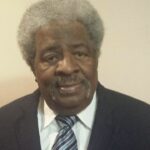 Ernest Lake Jones serves as Board member and Board Chair of the Southern Initiative Algebra Project, Inc. (SIAP). He is a graduate of the Howard University School of Law and a member of the Louisiana State Bar Association. He began his career as a Reginald Heber Smith Fellow assigned to New Orleans Legal Assistance Corporation. Early on, Jones began criminal practice and was a founding partner of the law firm Cotton, Jones & Dennis in New Orleans. He later became in-house counsel for the construction of the Louisiana Offshore Oil Port, after which he returned to private practice. Jones remained with the firm Elie, Jones & Associates in New Orleans until Hurricane Katrina devastated the area in 2005. He currently maintains a limited practice. Since his admission to the bar, Jones has been involved with social justice issues; his organizational clients have included many high profile clients over the years. He has served as a trial practice instructor at Tulane Law School, a visiting professor at the Loyola Law Clinic and a Judge, Pro Tempore, of the Civil District Court for Orleans Parish. The Federal Bar Association in New Orleans named him as a recipient of the Camille Gravel Public Service Award, and he serves on the Board of the Louisiana Civil Rights Museum.
Ernest Lake Jones serves as Board member and Board Chair of the Southern Initiative Algebra Project, Inc. (SIAP). He is a graduate of the Howard University School of Law and a member of the Louisiana State Bar Association. He began his career as a Reginald Heber Smith Fellow assigned to New Orleans Legal Assistance Corporation. Early on, Jones began criminal practice and was a founding partner of the law firm Cotton, Jones & Dennis in New Orleans. He later became in-house counsel for the construction of the Louisiana Offshore Oil Port, after which he returned to private practice. Jones remained with the firm Elie, Jones & Associates in New Orleans until Hurricane Katrina devastated the area in 2005. He currently maintains a limited practice. Since his admission to the bar, Jones has been involved with social justice issues; his organizational clients have included many high profile clients over the years. He has served as a trial practice instructor at Tulane Law School, a visiting professor at the Loyola Law Clinic and a Judge, Pro Tempore, of the Civil District Court for Orleans Parish. The Federal Bar Association in New Orleans named him as a recipient of the Camille Gravel Public Service Award, and he serves on the Board of the Louisiana Civil Rights Museum.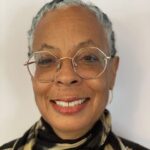 Dr. Renée A. Hill serves as Board member and vice chair of the Board of the Southern Initiative Algebra Project, Inc. (SIAP). She was an associate professor of philosophy who retired from Virginia State University (VSU) as the interim chair of the Department of History and Philosophy. Her area of specialization was political philosophy and her research interests center around justice and fairness. In consultation with the United States Holocaust Memorial Museum, she developed a course entitled “Justice after Genocide,” that she taught several times. She has published on this topic and lectured at the United States Holocaust Memorial Museum. Hill was co-director of the Institute for the Study of Race Relations at VSU for 12 years. She helped restart a student math tutorial group that teaches math according to pedagogy developed by Bob Moses of the Algebra Project, Inc. This group, entitled the Math Mentor Leadership Program (aka M-Squared), is currently operating in Petersburg and the community around VSU. Hill has been on the Board of the Southern Initiative Algebra Project since 2010.
Dr. Renée A. Hill serves as Board member and vice chair of the Board of the Southern Initiative Algebra Project, Inc. (SIAP). She was an associate professor of philosophy who retired from Virginia State University (VSU) as the interim chair of the Department of History and Philosophy. Her area of specialization was political philosophy and her research interests center around justice and fairness. In consultation with the United States Holocaust Memorial Museum, she developed a course entitled “Justice after Genocide,” that she taught several times. She has published on this topic and lectured at the United States Holocaust Memorial Museum. Hill was co-director of the Institute for the Study of Race Relations at VSU for 12 years. She helped restart a student math tutorial group that teaches math according to pedagogy developed by Bob Moses of the Algebra Project, Inc. This group, entitled the Math Mentor Leadership Program (aka M-Squared), is currently operating in Petersburg and the community around VSU. Hill has been on the Board of the Southern Initiative Algebra Project since 2010. 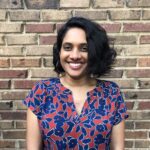 Lakshmi Sridaran serves as a Board member and secretary of the Board of the Southern Initiative Algebra Project, Inc. (SIAP). She is the executive director of South Asian Americans Leading Together (SAALT), a national South Asian movement strategy and advocacy organization. As SAALT’s Director of National Policy and Advocacy, she developed SAALT’s policy and legislative agenda, which focuses on immigration, racial profiling, and hate violence. Prior to joining SAALT, Sridaran served as the policy director for The Praxis Project, a Washington, D.C.-based national movement support organization focused on health ?? justice in communities of color. Sridaran’s social justice approach is grounded in her experiences organizing in the South. Before moving to D.C., she worked in New Orleans in Black-led organizations immediately following Hurricane Katrina. She worked on improving federal contracting opportunities for Black- and women-owned businesses, instituting participatory budgeting to expose inequitable distribution of federal recovery dollars and preserving public schools and infrastructure from rapid privatization. In her early organizing days, she helped ensure land retention for Black farmers in her home state of Georgia and conducted voter outreach in Haitian and LatinX communities in Miami leading up to the 2004 presidential election. Sridaran holds a Master’s degree in City Planning from the Massachusetts Institute of Technology and a Bachelor’s Degree in Ethnic Studies from The University of California, Berkeley.
Lakshmi Sridaran serves as a Board member and secretary of the Board of the Southern Initiative Algebra Project, Inc. (SIAP). She is the executive director of South Asian Americans Leading Together (SAALT), a national South Asian movement strategy and advocacy organization. As SAALT’s Director of National Policy and Advocacy, she developed SAALT’s policy and legislative agenda, which focuses on immigration, racial profiling, and hate violence. Prior to joining SAALT, Sridaran served as the policy director for The Praxis Project, a Washington, D.C.-based national movement support organization focused on health ?? justice in communities of color. Sridaran’s social justice approach is grounded in her experiences organizing in the South. Before moving to D.C., she worked in New Orleans in Black-led organizations immediately following Hurricane Katrina. She worked on improving federal contracting opportunities for Black- and women-owned businesses, instituting participatory budgeting to expose inequitable distribution of federal recovery dollars and preserving public schools and infrastructure from rapid privatization. In her early organizing days, she helped ensure land retention for Black farmers in her home state of Georgia and conducted voter outreach in Haitian and LatinX communities in Miami leading up to the 2004 presidential election. Sridaran holds a Master’s degree in City Planning from the Massachusetts Institute of Technology and a Bachelor’s Degree in Ethnic Studies from The University of California, Berkeley.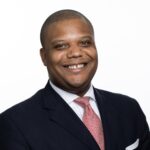 Ernest A. Brooks, III serves as Board member and treasurer of the Board of the Southern Initiative Algebra Project, Inc. (SIAP). He is an executive search consultant with Isaacson Miller, a national executive search firm serving mission-driven organizations, where he acts as co-lead of the firm’s social justice + advocacy practice area. Committed to transformative social-sector leadership, Brooks has served on governance and advisory boards for several national and local organizations including Interfaith Community Initiatives, Southern Initiative Algebra Project, Rural School and Community Trust, and Omicron Delta Kappa national leadership honor society. Additionally, he has led consulting engagements with numerous organizations in the areas of mission and vision development, strategic planning, program design and launch, organizational governance, and change management.
Ernest A. Brooks, III serves as Board member and treasurer of the Board of the Southern Initiative Algebra Project, Inc. (SIAP). He is an executive search consultant with Isaacson Miller, a national executive search firm serving mission-driven organizations, where he acts as co-lead of the firm’s social justice + advocacy practice area. Committed to transformative social-sector leadership, Brooks has served on governance and advisory boards for several national and local organizations including Interfaith Community Initiatives, Southern Initiative Algebra Project, Rural School and Community Trust, and Omicron Delta Kappa national leadership honor society. Additionally, he has led consulting engagements with numerous organizations in the areas of mission and vision development, strategic planning, program design and launch, organizational governance, and change management.
Brooks’ connection to SIAP began as a 6th grade student in Weldon, NC. He has been an active member of the SIAP and Algebra Project family for over 25 years serving as a math literacy worker, summer institute leader, community and site development consultant, and a member of the boards of directors of both SIAP and AP, Inc.
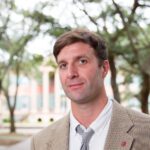 Dr. Jon Hale is on the Board of the Southern Initiative Algebra Project, Inc. (SIAP). As an associate professor (History of Education and Education Policy Studies) at the University of Illinois at Urbana-Champaign, Jon conducts research on the history of student activism and the intersection of race and educational policy. His recent book, The Choice We Face: How Segregation, Race, and Power Have Shaped Americas Most Controversial Education Reform Movement (Beacon Press, 2021) critically examines the history behind educational reform that focuses on equity and justice. His work has also been featured in outlets including The Atlantic, The American Scholar, the Chicago Tribune, CNN, and The Washington Post. His service connects broadly to civil rights education initiatives and quality education as a constitutional right. In addition to SIAP, Jon serves as an advocate for the Children’s Defense Fund Freedom School program.
Dr. Jon Hale is on the Board of the Southern Initiative Algebra Project, Inc. (SIAP). As an associate professor (History of Education and Education Policy Studies) at the University of Illinois at Urbana-Champaign, Jon conducts research on the history of student activism and the intersection of race and educational policy. His recent book, The Choice We Face: How Segregation, Race, and Power Have Shaped Americas Most Controversial Education Reform Movement (Beacon Press, 2021) critically examines the history behind educational reform that focuses on equity and justice. His work has also been featured in outlets including The Atlantic, The American Scholar, the Chicago Tribune, CNN, and The Washington Post. His service connects broadly to civil rights education initiatives and quality education as a constitutional right. In addition to SIAP, Jon serves as an advocate for the Children’s Defense Fund Freedom School program.